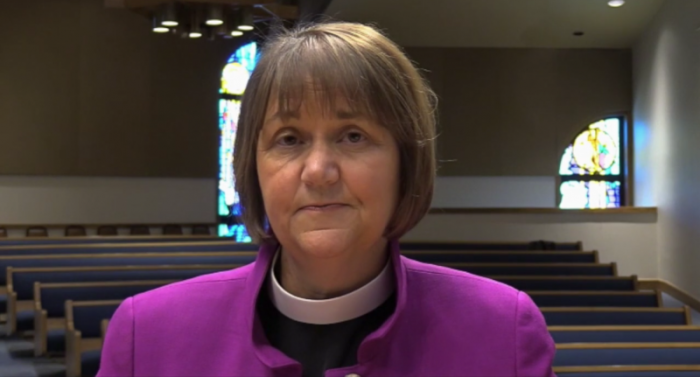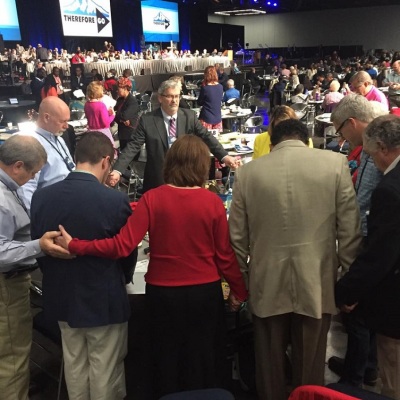United Methodist Conference Faces 'Unprecedented Financial Crisis' After Election of Lesbian Bishop

A United Methodist Church regional body says it's been experiencing an "unprecedented financial crisis" since the election of a married lesbian as bishop.
Yellowstone Annual Conference, a part of the UMC Mountain Sky Area, released a report earlier this month which noted that they've experienced an "unprecedented level of deficit that could end normal operations of the conference."
The report went on to state that lesbian Karen Oliveto's election as bishop "is only one of many factors," adding that "death and loss of significant givers" among local churches is another.

Jeff Walton of the theologically conservative Institute on Religion & Democracy, broke the story on Wednesday, noting that the Conference's longstanding decline in financial giving has accelerated since Oliveto took office.
"The Yellowstone Annual Conference has faced a loss of income of $30,000 a year from 2014 through 2016, but the presentation reports that in 2017 this loss has grown to $25,000 a month under 2016 income levels in 2017," wrote Walton.
"Forecast income for 2017 is projected to be $935,000, while the forecast deficit is $303,356. At the start of 2017, conference reserves were only $294,000."
In an interview with The Christian Post, Walton noted that while Oliveto was not the origin of the decline, she has been a major factor.
"Her election last summer was a sign of deeper problems which have long existed in the Western Jurisdiction, not the cause of those problems," said Walton.
"Perhaps Oliveto has prompted orthodox United Methodists in the region to a decision point. Her heavy hand in conference matters has also been made clear: she wants affirmation, and is taking names of those in the area who decline to offer it."
Walton also told CP that "intermountain West and the northern plains have never been a vibrant region for Methodism."
"The teaching proclaimed by most United Methodist churches in this area is far from the orthodox and vibrant Wesleyan faith which has sustained the United Methodist Church in the American South and in fast-growing overseas jurisdictions," added Walton.
Last year, the UMC Western Jurisdiction elected Oliveto to serve as bishop of the Mountain Sky Area, which includes the Yellowstone Conference.
Soon after a complaint was leveled against Oliveto for violating the UMC's ban on non-celibate homosexual clergy.
In April, the United Methodist Judicial Council ruled 6–3 that Oliveto's election had violated Church law. Earlier this month, the Western Jurisdiction asked the Judicial Council to reconsider their decision.
Richard Marsh, counsel to the Western Jurisdiction, said in a statement that the brief was meant to help advance acceptance of the LGBT community within the Church.
"The Western Jurisdiction College of Bishops believes it has an obligation to the wider LGBTQ community within the Church and beyond to point out the fundamental errors contained in this decision," said Marsh.
In the brief, Marsh argued that Oliveto being in a same-sex marriage did not necessarily make her a "self-avowed practicing homosexual," which is the specific group the Book of Discipline says cannot be ordained.
"The Judicial Council is without authority to expand the list of chargeable offenses. Only the General Conference can declare that same gender marriage is a chargeable offense, and it has not done so despite opportunity," argued the brief.
Charmaine Robledo, spokesperson for the Mountain Sky Area, told CP that they were looking into efforts to counter the financial crisis, including the raising of about $40,000 at their recent annual conference meeting.
"Indications are strong we will be able to raise $300,000 by the end of 2018, helping to alleviate our financial situation," explained Robledo.
"Bishop Oliveto has ensured we have been open and transparent throughout this process, making sure the members of congregations of the Yellowstone Annual Conference knew of the situation. As people of faith do, they respond during times of need."
In addition to the aforementioned reasons, Robledo also referenced that "we are a small conference covering a large geographic region – 120 congregations – compared to other conferences that have five or six times or even more congregations supporting similar levels of ministry in their regions."





























